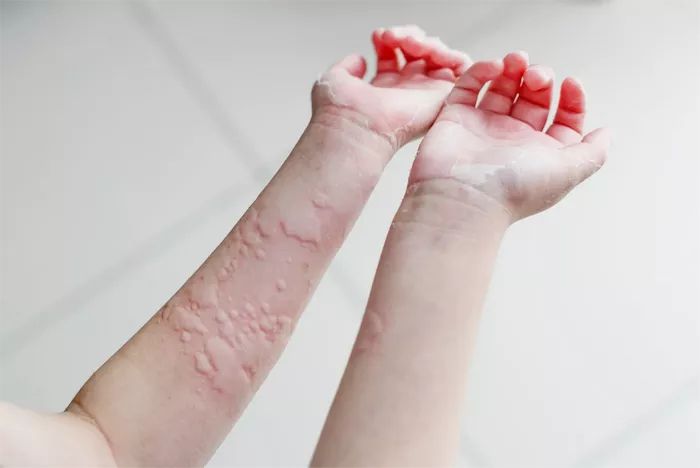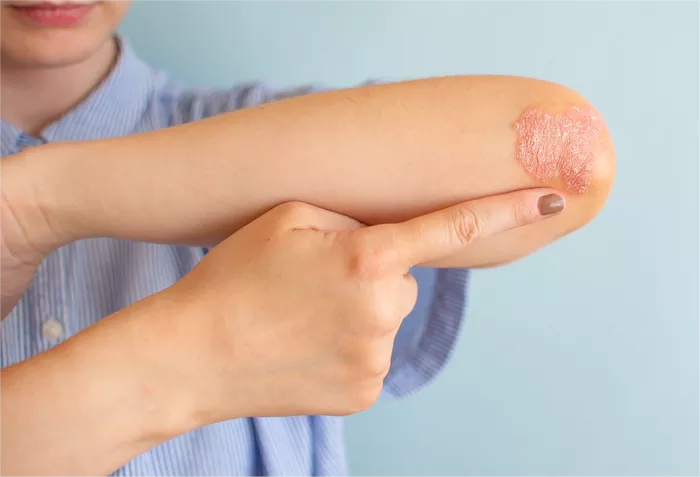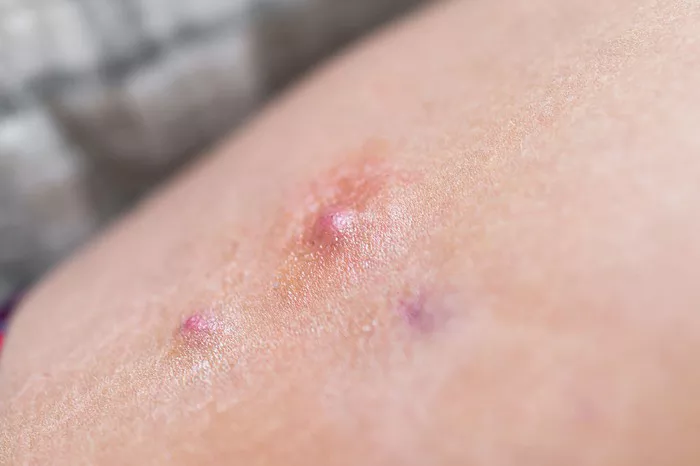Exercise is universally acknowledged as a cornerstone of a healthy lifestyle, offering numerous benefits to both physical and mental well-being. However, for some individuals, the pursuit of fitness can be accompanied by an unexpected and uncomfortable phenomenon known as exercise-induced urticaria (EIU). This condition, characterized by the development of hives, itchiness, and other allergic symptoms during or after physical activity, can significantly hinder one’s exercise routine and quality of life. Understanding the underlying causes of EIU is crucial for effective management and prevention strategies. In this article, we delve into the multifaceted factors contributing to EIU and explore potential mechanisms driving this perplexing condition.
The Physiology of Urticaria
Before delving into the specifics of exercise-induced urticaria, it’s essential to grasp the fundamentals of urticaria itself. Urticaria, commonly referred to as hives, is a skin condition characterized by the sudden appearance of raised, red, and itchy welts or plaques. These lesions can vary in size and shape and typically emerge due to the release of histamine and other inflammatory mediators from mast cells in the skin.
Urticaria can be triggered by a wide range of stimuli, including allergens, medications, infections, and physical factors such as pressure, temperature changes, or, pertinent to our discussion, physical exertion. Exercise-induced urticaria falls within the spectrum of physical urticarias, a group of conditions where physical stimuli induce the characteristic skin reactions.
Unraveling the Causes of Exercise-Induced Urticaria
While the precise mechanisms underlying exercise-induced urticaria remain incompletely understood, several factors have been implicated in its pathogenesis. These factors often interact in complex ways, contributing to the heterogeneity of EIU presentations among affected individuals. Let’s explore some of the primary causes thought to underlie this condition:
1. Immune System Activation: Exercise elicits a cascade of physiological responses, including the activation of the immune system. In susceptible individuals, this heightened immune activity may trigger the release of pro-inflammatory cytokines and histamine, leading to the development of urticarial symptoms. Additionally, exercise-induced increases in body temperature and blood flow can exacerbate immune-mediated responses in the skin, further predisposing individuals to EIU.
2. Histamine Release: Histamine, a key mediator of allergic reactions, plays a central role in the pathogenesis of urticaria. During exercise, mast cells located in the skin are activated by various stimuli, such as mechanical stress, temperature changes, and stress hormones. This activation leads to the release of histamine and other inflammatory substances, ultimately culminating in the development of hives and associated symptoms.
3. Physical Friction and Pressure: The mechanical forces exerted on the skin during physical activity can contribute to the development of urticaria in susceptible individuals. Friction from tight clothing, repetitive movements, or contact with equipment may trigger mast cell degranulation and the release of histamine, exacerbating urticarial symptoms. Moreover, pressure-induced urticaria, a subtype of physical urticaria, may manifest during activities that involve prolonged pressure on the skin, such as weightlifting or cycling.
4. Exercise-Induced Anaphylaxis: In rare cases, exercise-induced urticaria may occur concomitantly with or progress to exercise-induced anaphylaxis, a severe allergic reaction characterized by systemic symptoms such as hypotension, respiratory distress, and collapse. While the exact mechanisms underlying exercise-induced anaphylaxis are not fully elucidated, immunological factors and mast cell activation are believed to play pivotal roles.
5. Underlying Atopy and Allergic Predisposition: Individuals with a history of atopic conditions, such as asthma, allergic rhinitis, or eczema, may be at increased risk of developing exercise-induced urticaria. These individuals often exhibit heightened immune reactivity and an increased propensity for allergic reactions, predisposing them to EIU upon exposure to physical exertion.
Management and Prevention Strategies
Effective management of exercise-induced urticaria hinges on identifying and addressing underlying triggers while implementing preventive measures to minimize symptom occurrence. A comprehensive approach may include the following strategies:
1. Identification of Trigger Factors: Keeping a detailed diary of exercise routines, dietary intake, and environmental exposures can help pinpoint specific triggers contributing to EIU episodes. Common triggers may include certain foods, medications, environmental allergens, or particular types of physical activity.
2. Modification of Exercise Regimens: For individuals prone to EIU, modifying the intensity, duration, or timing of exercise may help mitigate symptoms. Gradual warm-up and cool-down periods, as well as wearing loose-fitting, breathable clothing, can reduce the likelihood of skin friction and pressure-induced urticaria.
3. Pharmacological Interventions: In cases of severe or persistent symptoms, pharmacological interventions such as antihistamines, leukotriene receptor antagonists, or corticosteroids may be prescribed to alleviate acute symptoms and prevent recurrence. However, the efficacy of these medications in managing EIU varies among individuals, and their long-term use should be monitored closely.
4. Allergen Avoidance: When allergic triggers are identified, avoidance measures should be implemented to minimize exposure. This may involve dietary modifications to eliminate potential food allergens, as well as avoidance of known environmental allergens or irritants.
5. Consultation with Healthcare Professionals: Individuals experiencing recurrent or severe episodes of exercise-induced urticaria should seek evaluation and guidance from healthcare professionals, including allergists, dermatologists, or immunologists. These specialists can conduct comprehensive assessments, perform diagnostic testing, and tailor treatment plans to address individual needs effectively.
Conclusion
Exercise-induced urticaria poses a unique challenge for individuals striving to maintain an active lifestyle. By elucidating the underlying causes and implementing targeted management strategies, affected individuals can effectively navigate and mitigate the impact of EIU on their exercise routines and overall well-being. Through a multifaceted approach encompassing trigger identification, modification of exercise regimens, pharmacological interventions, and collaboration with healthcare professionals, individuals can reclaim control over their physical activity without succumbing to the discomfort of exercise-induced urticaria.
Related Topics:
Best Homeopathic Medicine for Chronic Urticaria


























